
Covid-19, reverse migration, smartphones: Scripting demand for ayurveda startups
As the pandemic makes Indians turn to the age-old formulations of holistic and preventive health care, startups are riding the internet wave into smaller cities
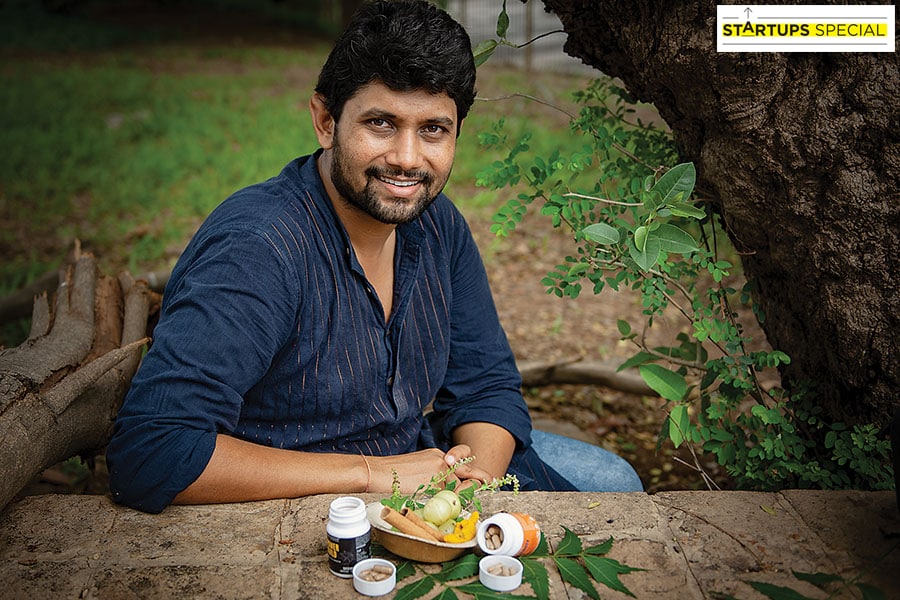 Image: Neha Mithbawkar for Forbes India
Image: Neha Mithbawkar for Forbes India
The outbreak of the Covid-19 pandemic last year gave rise to renewed interest in traditional ways of boosting immunity and respiratory health, with even the Ministry of Ayush recommending products such as herbal teas, turmeric milk and Chyawanprash. Not only did this shine the spotlight on India’s age-old traditions of Ayurveda, which emphasises preventive rather than curative health care, but also gave companies in the sector further impetus.
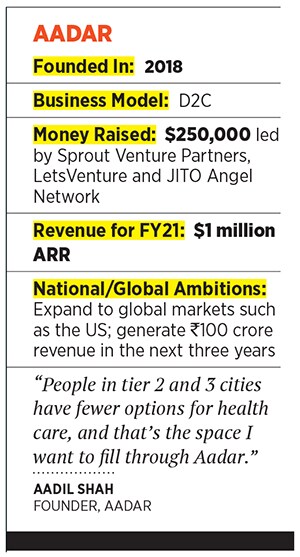 “Indian consumers are willing to spend more on health care, which includes traditional immunity boosters like Chyawanprash and other herbal health supplements. Healthier lifestyles are now becoming a priority and the consumption of vitamins and mineral supplements is skewed towards holistic and preventive health,” says Nidhi Sinha, head of content, Mintel Reports India, a global market research firm. “Consumers are looking for additional aids to boost their immune systems,” she adds.
“Indian consumers are willing to spend more on health care, which includes traditional immunity boosters like Chyawanprash and other herbal health supplements. Healthier lifestyles are now becoming a priority and the consumption of vitamins and mineral supplements is skewed towards holistic and preventive health,” says Nidhi Sinha, head of content, Mintel Reports India, a global market research firm. “Consumers are looking for additional aids to boost their immune systems,” she adds.
While the impetus and push provided by the Ministry of Ayush has encouraged several startups to enter the Ayurveda segment, the pandemic has provided a further boost to the demand for their products. Moreover, although these companies are based in the metros, they are finding an expanding consumer base in tier 2 and 3 cities. This is because of factors such as reverse migration, by which people who lived and worked in the metros have moved back to their hometowns, taking with them their big-city awareness of brands and ecommerce, and also because of increased internet penetration and usage among smaller cities.
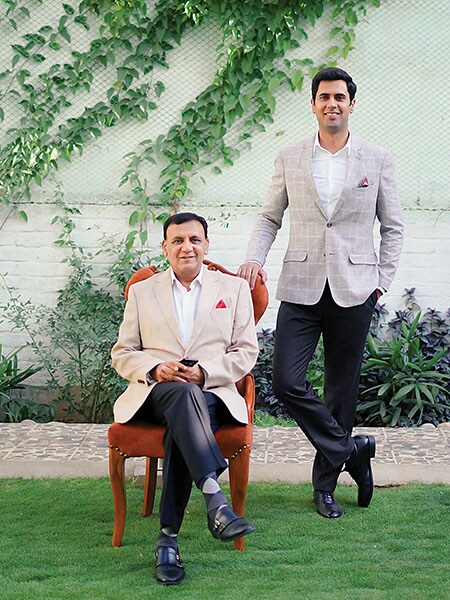 Ankush Passi with his father Jogesh Passi, who is a director at Add Veda
Ankush Passi with his father Jogesh Passi, who is a director at Add Veda
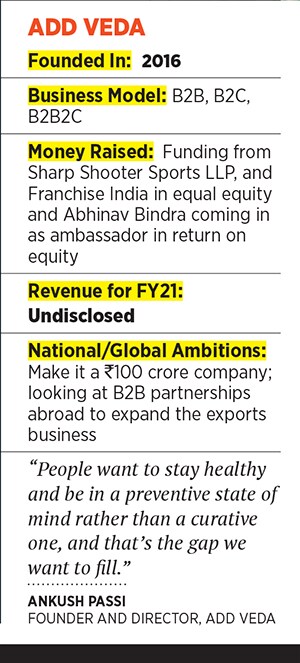 Therefore for companies such as Add Veda and Aadar, a digital-first and direct-to-consumer sales strategy has reaped its benefits. Add Veda was founded in Ludhiana in 2016 by Ankush Passi, and has investors such as Olympic gold medallist Abhinav Bindra’s company Shooting Star Sports LLP, and Franchise India, an integrated franchise solutions company. Add Veda was clocking sales of ₹20 lakh a month in 2018-19, and “in 2020-21, our gross revenue has grown by 300 percent. If consumer interest continues, we hope to keep growing in a similar fashion,” says Passi.
Therefore for companies such as Add Veda and Aadar, a digital-first and direct-to-consumer sales strategy has reaped its benefits. Add Veda was founded in Ludhiana in 2016 by Ankush Passi, and has investors such as Olympic gold medallist Abhinav Bindra’s company Shooting Star Sports LLP, and Franchise India, an integrated franchise solutions company. Add Veda was clocking sales of ₹20 lakh a month in 2018-19, and “in 2020-21, our gross revenue has grown by 300 percent. If consumer interest continues, we hope to keep growing in a similar fashion,” says Passi.
(This story appears in the 30 November, -0001 issue of Forbes India. To visit our Archives, click here.)

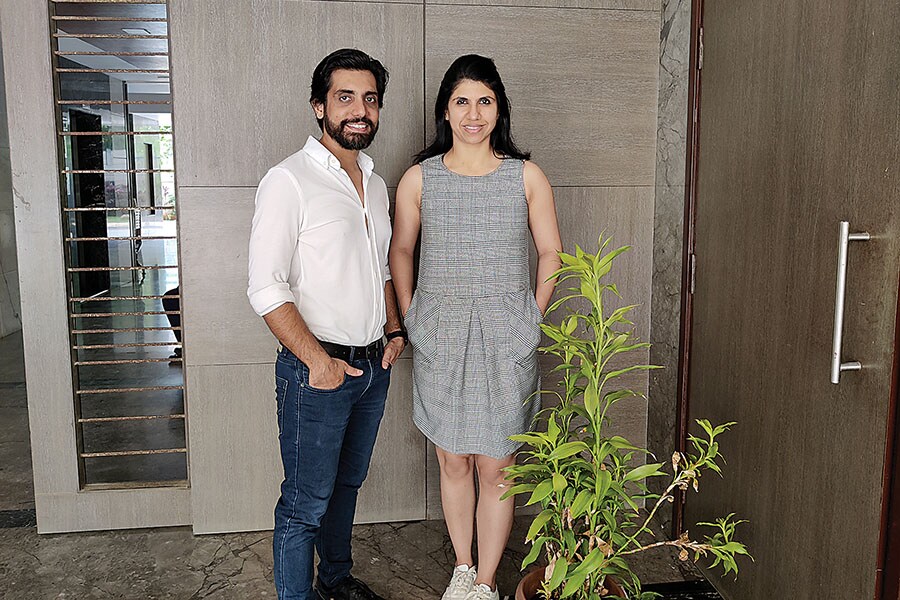 Co-founders of Oziva, Mihir Gadani and Aarti Gill
Co-founders of Oziva, Mihir Gadani and Aarti Gill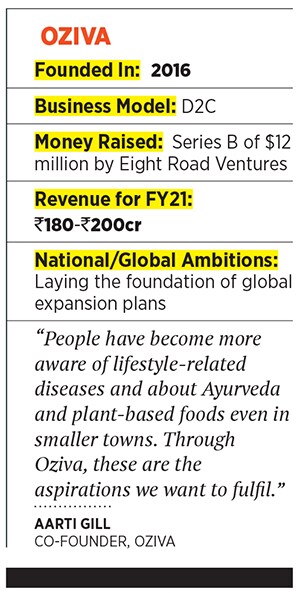
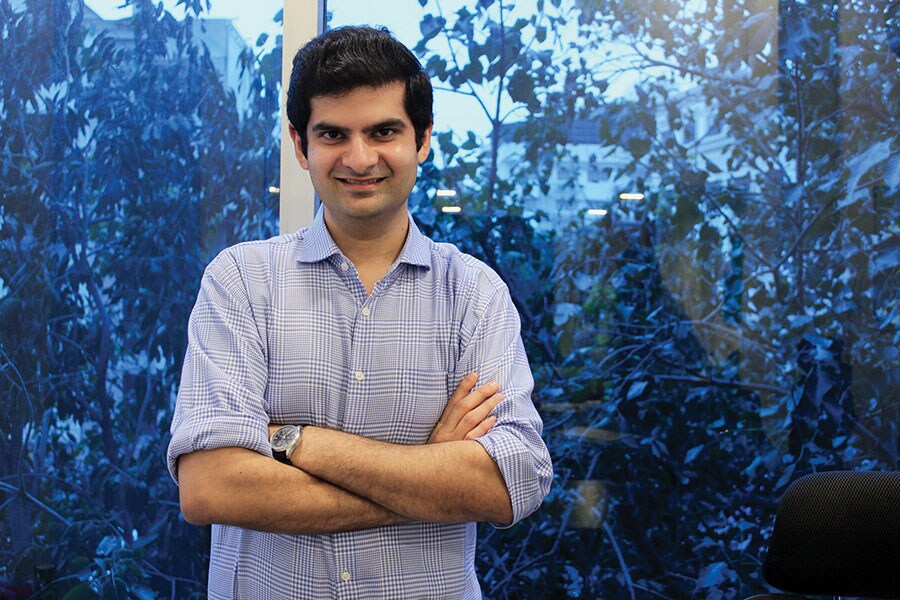 Ameve Sharma, Co-founder, Kapiva
Ameve Sharma, Co-founder, Kapiva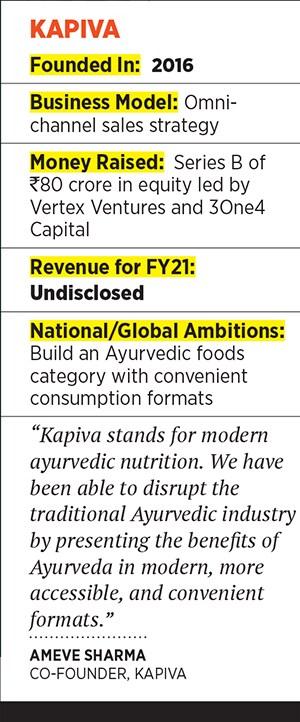 Beyond India
Beyond India



